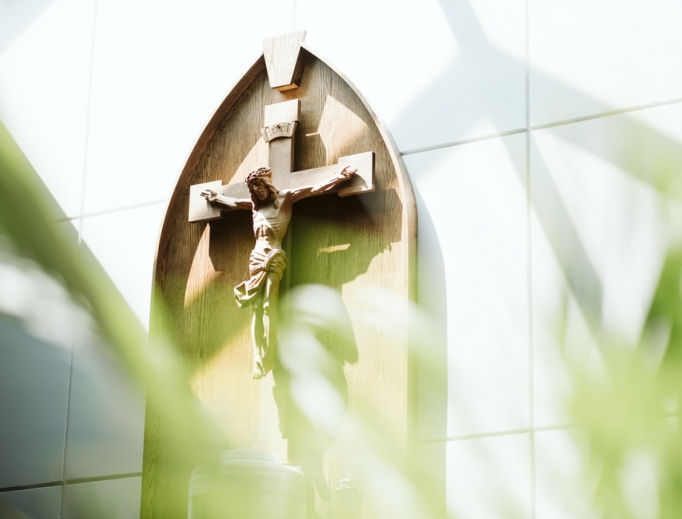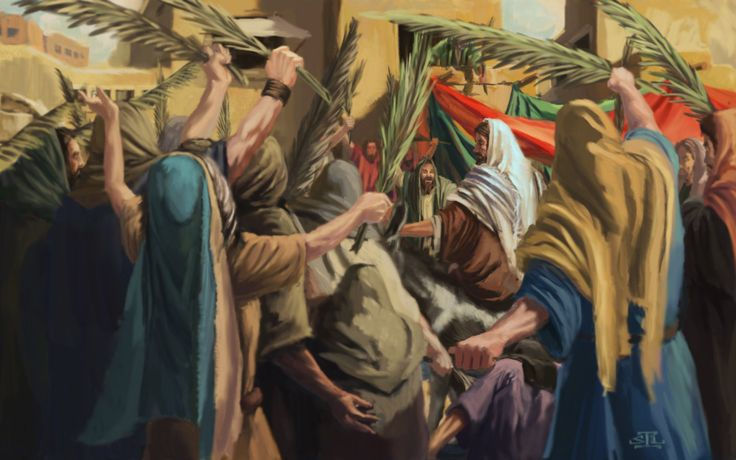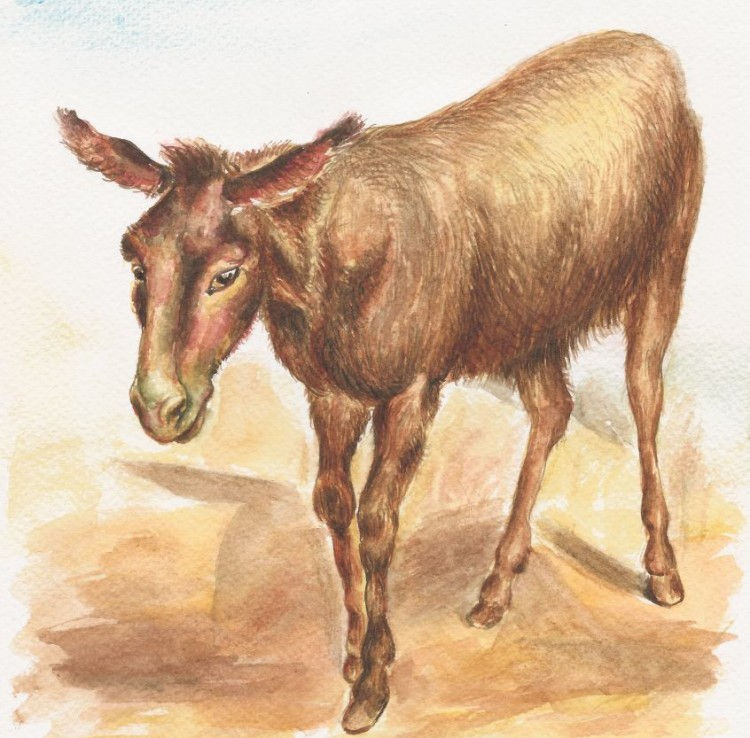What is so ‘triumphal’ about a man riding a donkey?
- Charles
- 1 avr. 2023
- 4 min de lecture
Reflection for Palm Sunday of the Lord's Passion: Isaiah 50:4-7, Philippians 2:6-11, & Matthew 26:14—27:66.
The Gospel passages (Mt 21, Mk 11, Lk 19 & Jn 12) describing Jesus’ entry into Jerusalem are traditionally entitled “Jesus’ triumphal entry into Jerusalem”. What is so ‘triumphal’ about a Jewish carpenter-turned-preacher riding a borrowed colt into Jerusalem with a bunch of peasants and fishermen amidst cries of hosanna? Don’t our movie heroes (the likes of James bond and Rajinikanth) show us how to make a better ‘triumphal’ entrance (entry songs, dance numbers, private jets, gravity-defying fight scenes…)? What is so triumphal about the Palm Sunday procession?

1. Jesus’ entry is the triumph of faith over fear: Yesterday’s gospel reading (1st April 2023) ends with people asking each other, “What do you think? That he will not come to the feast?”. Why would they ask this? The chief priests and the Pharisees had given orders that anyone who knew Jesus’ whereabouts should report it so they could arrest him. Jesus’ arrest was imminent for he now figured on the ‘wanted’ list of the “powers that be”. And yet, here is Jesus entering Jerusalem, literally riding to his destiny, fully aware of the dangers that await him in the city. He knew that this Palm Sunday procession is going to turn into his Procession to Calvary in a few days. And yet, he rode!

Jesus triumphantly faces fear with faith in his Palm Sunday procession. Here is a challenging truth about our discipleship: “If any wish to come after me, let them deny themselves and take up their cross and follow” (Mt 16:24). Our discipleship is a call to conquer our fears and their various forms (worry, anxiety, panic, etc.,) with faith. Jesus rides to his ‘death’ fully aware that the Father is walking with him. He was doing the work of the one who sent him. This staunch faith in the plan, providence, and power of His Father strengthens Jesus to face the traps set for him. What are the fears that assail our discipleship? Can we draw strength from our faith to face our fears? Can our faith triumph over our fear?
2. Jesus’ entry is the triumph of love over violence: Bible records a number of ‘triumphal’ processions previously witnessed in Jerusalem: the triumphal procession of Solomon (1 Kings 1), the triumphal procession of Jehu son of Jehoshaphat (2 Kings 9), the triumphal procession of Simon Maccabeus (1 Maccabeus 13), and the triumphal procession of Judas Maccabaeus (2 Maccabaeus 10). All these processions were meant to welcome kings and leaders returning to Jerusalem after victorious battles and combats. People lined up to welcome their war heroes with songs, dance, and palm leaves. On Palm Sunday, there was a hint of a similar hope! The people of Jerusalem saw in Jesus, a possible military messiah, who came to deliver them from the oppressive rule of the Romans.

Yes, this messiah was there to deliver his people. However, his victory would be achieved not by killing his enemies but by becoming the victim. Today’s first reading (one of the four servant songs of Isaiah) describes the underlying choice of the suffering servant: victimhood and not violence. Bishop Oscar Romero preached in a homily on 27th November 1977, “We have never preached violence, except the violence of love, which left Christ nailed to a cross... The violence we preach is not the violence of the sword, the violence of hatred. It is the violence of love, of brotherhood, the violence that wills to beat weapons into sickles for work”. What defines our understanding of triumph? Is our life governed by the logic of violence or the violence of love?
3. Jesus’ entry is the triumph of the little ones: English theologian, philosopher and author GK Chesterton wrote a poem entitled The Donkey. The Palm Sunday donkey narrates details about its sorrowful existence: its monstrous head, sickening cry, and ears like errant wings. He is an object of ridicule, an outcast reduced to silence, and the devil’s walking parody.
When fishes flew and forests walked
And figs grew upon thorn,
Some moment when the moon was blood
Then surely I was born.
With monstrous head and sickening cry
And ears like errant wings,
The devil’s walking parody
On all four-footed things.
The tattered outlaw of the earth,
Of ancient crooked will;
Starve, scourge, deride me: I am dumb,
I keep my secret still.

However, in the final stanza, the donkey reveals his/her true worth:
Fools! For I also had my hour;
One far fierce hour and sweet:
There was a shout about my ears,
And palms before my feet.
God makes use of the weak, the ‘least’ and the ‘last’ for his redemptive work in mysterious ways. Every disciple has a role to play in the triumph of the salvific work of Christ. In the salvation story, we are participants, not mere spectators. May our entry into the Holy Week, enable us to face our fears with faith, embrace the violence of love, and contribute our ‘little’ to the triumph of God’s salvific work of today’s Calvaries.




Commentaires